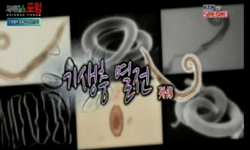At first glance, Parasite seems to be a film based on typical Korean subjects and situations, such as living conditions in semi-underground housing among many others, but it draws universal sympathy since it deals with the typical pro...
http://chineseinput.net/에서 pinyin(병음)방식으로 중국어를 변환할 수 있습니다.
변환된 중국어를 복사하여 사용하시면 됩니다.
- 中文 을 입력하시려면 zhongwen을 입력하시고 space를누르시면됩니다.
- 北京 을 입력하시려면 beijing을 입력하시고 space를 누르시면 됩니다.

피카레스크적 전망에서 본 <기생충>: 『사기꾼 El Buscón』과의 비교를 중심으로 = Parasite from a Picaresque Perspective: A Contrastive Comparison with El Buscón
한글로보기https://www.riss.kr/link?id=A108813319
-
저자
조민현 (대구카톨릭대학교)

- 발행기관
- 학술지명
- 권호사항
-
발행연도
2023
-
작성언어
Korean
-
주제어
기생충 ; 사기꾼 ; 피카레스크 소설 ; 봉준호 ; 프란시스코 데 케베도 ; 계급 ; 선 ; Parasite ; El Buscón ; Picaresque novel ; Bong Joon-ho ; Francisco de Quevedo ; Class ; Line
-
등재정보
KCI등재
-
자료형태
학술저널
-
수록면
373-396(24쪽)
- DOI식별코드
- 제공처
-
0
상세조회 -
0
다운로드
부가정보
다국어 초록 (Multilingual Abstract)
At first glance, Parasite seems to be a film based on typical Korean subjects and situations, such as living conditions in semi-underground housing among many others, but it draws universal sympathy since it deals with the typical problem that constitutes the gap between the rich and the poor, which can be found anywhere in the world. In addition, this film succeeded in creatively fusing various existing genres, such as black comedy, thriller, grotesque, and horror, genres with which audiences around the world are familiar. This study attempts to explore Parasite, which is a mixture of various genres, by connecting it with the picaresque genre, which originated in Spain in the 16th century. In particular, we explore the similarities between this film and Quevedo's picaresque novel El Buscón. To this end, we first examine the historical realities of Spain in the 17th century and Korea in the 21st century, their respective historical backgrounds, and we explore the epistemological similarities related to the conflict between individuals and within the society. Subsequently, the similarities between both works are analyzed through their respective portrayals of deception and forgery as means of survival, various symbols of class distinction, and ‘line’ as a boundary of status. In addition, the ideological similarities and the differences concerning ‘family’ between these works emerging from their comparison are also discussed.
In this way, this study is able to expand the scope of Parasite by examining this film through its comparison with the picaresque novel El Buscón and broaden the understanding of the correlation between literature and film.
동일학술지(권/호) 다른 논문
-
하비에르 사모라(Javier Zamora)의 『나 홀로 Solito』에 드러난 증언 서사의 의미: ‘홀로 됨’의 고찰과 감각적 기억의 재현
- 경희대학교(국제캠퍼스) 비교문화연구소
- 이은아
- 2023
- KCI등재
-
- 경희대학교(국제캠퍼스) 비교문화연구소
- 강민수
- 2023
- KCI등재
-
윌리엄 포크너의 『내려가라, 모세여』에 나타나는 생태주의적 비전 읽기
- 경희대학교(국제캠퍼스) 비교문화연구소
- 김미정
- 2023
- KCI등재
-
대한민국-스페인 육군 군가 비교 연구 : 가사 구조와 의미를 중심으로
- 경희대학교(국제캠퍼스) 비교문화연구소
- 박소영
- 2023
- KCI등재




 KCI
KCI KISS
KISS






